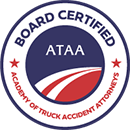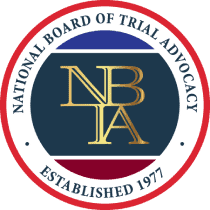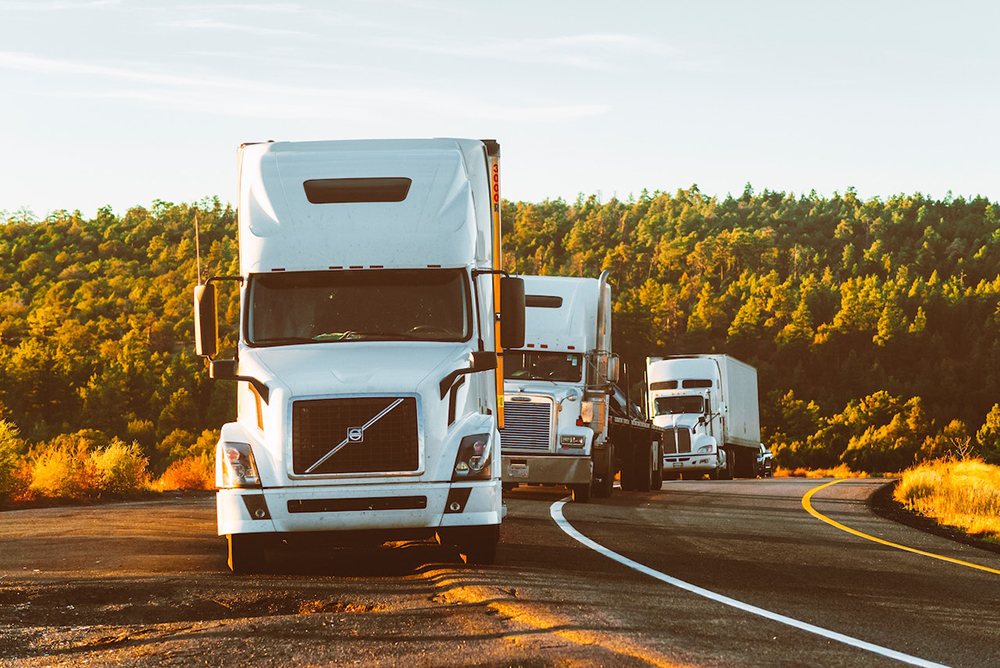Who Is Liable in a Delivery Truck Accident?
If you look around you, no matter whether you’re in an urban area, the suburbs, or even the most rural areas in our country, you’re bound to see a delivery truck nearby if you look long enough. Why is that? Well, because consumer demand is high. Many individuals don’t want to wait for items to come in the mail; they want it right then and there.
Retailers must have what their customers want on the shelves when they want it, or otherwise, they’ll get passed up for someone else. Thus, stores often have trucks coming to them to and fro at all times of the day to ensure they meet customer needs, and you’re likely to see them as a result.
What’s the downside to us sharing the road with so many delivery trucks? As you might imagine, these truckers are often under significant pressure. They travel long distances, work long hours, and because there’s a shortage of truckers and such a significant demand for their labor, these truck drivers are frequently pushed to their personal limits—and even encouraged to break the law to turn an extra buck.
If you’ve had the misfortune of having been struck by the operator of a delivery truck, you might wonder what options you have for pursuing damages. That all boils down to who’s responsible for the crash. In the legal industry, the words responsibility and liability are often used interchangeably. Below we’ll break down who is liable in a delivery truck accident and what you may want to do with that information in tow.
Understanding Who’s Liable for Delivery Truck Accidents
While it would be natural to assume that either a trucker or a passenger car operator (or whoever else was involved in the crash) was one of the two parties liable for it, that’s not necessarily the case. There are one or more parties liable for a delivery truck accident, including some of the following:
- Delivery truck drivers
- Passenger car drivers
- Warehouse workers (who pack the truck)
- Fleet companies (who employ truckers and schedule them and maintain their trucks)
- Truck manufacturers (or auto parts manufacturers)
It’s perhaps easiest to explain how the above-referenced parties may be liable for a crash via examples of full and partial liability. That being said, it’s important to emphasize that liability is seldom as clear-cut as the scenarios described may suggest. Generally, an investigation is necessary to home in on who or what may have caused the crash.
Understanding What Full Liability for a Truck Crash Might Look Like
A trucker isn’t necessarily automatically responsible for a delivery truck accident. On the surface, either the tractor-trailer operator or the passenger car operator can be. For example, if a driver merges in too close in front of a truck driver because they didn’t check their blind spot in advance, they might be deemed liable for the crash. Likewise, if a trucker fails to apply their brakes to give them enough time to reach a full stop before they cross into the intersection and they strike a vehicle, a police officer, lawyer, or insurance company might determine that they’re liable for the tractor-trailer accident.
Understanding Partial Liability in Truck Accident Cases
There are some instances in which a passenger car operator or truck driver is only partially liable for it.
Situations may occur whereby a tractor-trailer operator and passenger car driver both commit traffic infractions, and the combination of their behaviors results in a crash. There may also be a scenario in which a trucker or passenger car operator made a driving error that contributed to the crash, but a mechanical defect with the vehicle may have also played a factor in causing the end result.
To better understand partial liability, take a delivery truck driver who takes a turn too fast. Doing so might cause their truck to roll over, leading it to fall on top of nearby vehicles, injuring those vehicles’ occupants. Truck rollovers like these are often caused by a warehouse worker’s failure to properly secure the load. However, the trucker was in the wrong by taking the turn too fast (even if they didn’t pack the load or know that it wasn’t secured in place). In this case, a delivery truck driver could be held liable for causing the crash, as well as potentially the warehouse staff who incorrectly packed it.
A trucker may also be held partially liable for a crash in addition to their employer, for example, if the truck driver failed to perform a government-mandated pre-trip inspection to identify that their employer hadn’t yet fixed a potential problem with their vehicle that they’d previously told the fleet company about (and that they should have taken care of).
When Multiple Parties May Be Liable for a Delivery Truck Accident
We’ve spent a lot of time above discussing how a passenger car driver or trucker and perhaps warehouse workers may be found liable for an accident involving a delivery vehicle; and how the combination of choices these different parties make may lead one to be deemed fully or partially responsible for what occurred. There are other instances in which the following parties mentioned above may also be deemed to share in the responsibility for what occurred, such as:
- Trucking companies: Also known as fleet companies, these companies are the ones who own the semi-trucks, land the contracts and assign the truckers to the job, screen the tractor-trailer operators they hire, and are responsible for maintaining their 18-wheelers in tip-top condition. If the truck company directly hires truckers or owns their trucks, then they could potentially have an insurance claim or lawsuit filed against them.
- Truck or auto parts manufacturers: 18-wheelers come equipped with parts manufactured by different companies in some cases. While there’s likely some degree of testing to ensure they’re safe, product defects, like design, manufacturing, and advertising ones, can occur that ultimately cause delivery truck brakes to fail, the tractor-trailer’s speed not to register accurately, a wheel to disintegrate and fall off its axle, and more, all causing a crash.
While the examples above aren’t exhaustive, the goal is to give you examples of situations that may result in a delivery truck crashing that aren’t wholly the trucker or passenger driver’s fault, but maybe partially theirs (or perhaps not theirs at all, but instead a completely different party’s—or that of multiple parties). It’s also important to note that in the event a trucker is an owner-operator, meaning they own their truck and source their own jobs, they may be held personally liable for any damages they cause.
Why Does Liability for Truck Accidents Matter?
States generally fall into one of two different categories, which is that they are usually at-fault or no-fault states.
The way it typically works is that if you live in a no-fault state and you get hurt in a crash with a delivery truck, then you would file a claim with your own insurance company for your accident-related expenses like medical bills. In those situations, you would typically only be able to file a claim with the insurance company representing the other party who caused the crash if you could prove they were at fault and your damages exceeded your policy limits.
In an at-fault state, it’s critically important to determine who caused the accident because that dictates who an injured party can hold liable for the costs they incurred as a result. In an at-fault state, you may not have any recourse to recover compensation for accident-related medical expenses, for example, unless you have med payments, an uninsured motorist, or some other coverage if you’re deemed liable for causing a crash. In some states, however, there is a comparative negligence standard in place that allows those who sustain damages in a crash to pursue a claim or lawsuit, provided they’re less than 51% responsible for what happened.
So, long story short, determining liability for a delivery truck accident is important because it can affect:
- Who you can pursue for damages if you’re hurt
- How much you may be able to recover if you sustained catastrophic injuries (and will require residual medical care)
Determining Liability for a Delivery Truck Accident Isn’t Easy
As mentioned above, determining liability for any crash frequently isn’t straightforward. However, it’s particularly complex in truck accident cases with more potentially liable parties.
The Super Team at Trucking Injury Law Group only handles truck accident cases, which means we have a keen understanding of what goes into what can go wrong resulting in these crashes and tactics insurers use to deny responsibility in these instances. Let a Reno tractor-trailer crash lawyer sit down with you for a free consultation to discuss your case so we can begin sorting out liability, which is the first step in your being able to file a claim or lawsuit to recover compensation for damages you’ve sustained.






